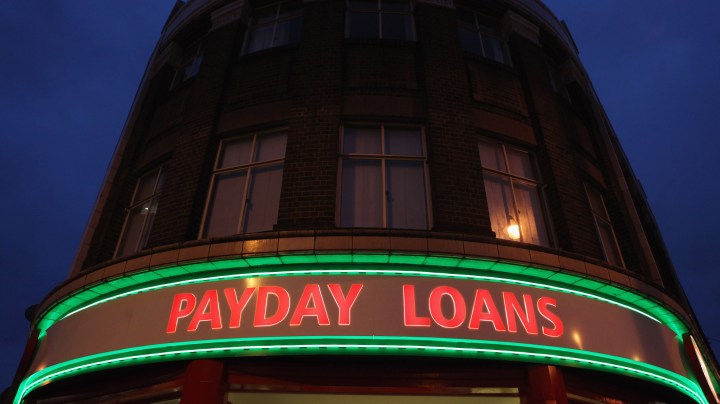
Nebraskans vote to cap interest rates on payday loans
Nebraskans vote to cap interest rates on payday loans

Right before Christmas in 2010, Phil Davis found out that his car needed repairs. He still remembers, a decade later, because he and his wife had to spend all of the money they had been saving up for Christmas that year on the car.
“At the time we had a 3-year-old son, and we didn’t want to tell him that there wasn’t a Santa Claus and there wouldn’t be a Christmas,” said Davis, who lives in Gretna, Nebraska.
So they went to a payday lender and took out a $500 loan, he said, “thinking, you know, we’ll take this out, we’ll pay it off, no big deal, we’ll make it work.”
It ended up taking them three years to pay it off and cost over $5,000.
Stories like that are common in Nebraska, where the average annual interest rate on payday loans is over 400%, and in the 31 other states where lenders can charge triple-digit interest on small-dollar loans. More than 80% of people who take out a payday loan aren’t able to pay it back within two weeks and end up having to take out another loan, the Consumer Financial Protection Bureau found in 2014.
Consumer advocates in Nebraska have been pushing state legislators to cap interest rates on payday loans for years, according to Aubrey Mancuso of Voices for Children in Nebraska, to no avail. So this year, they got the issue on the ballot and won, with almost 83% of the vote.
“It’s been a long time since 83% of Nebraska voters have agreed on anything, if ever,” said Mancuso, with a laugh. “This is one of those issues where the elected representatives are really out of step with where people are in Nebraska.”
In passing Initiative 428, Nebraska joins 16 other states and the District of Columbia in capping interest rates on payday loans at 36% or less. The Military Lending Act, passed in 2006, also prohibits lenders from charging active duty military more than 36% annual interest on small-dollar loans.
“Initiative 428 was just a huge win for consumers,” said Kiran Sidhu, policy council at the Center for Responsible Lending. “Especially those low-income consumers and consumers of color who are particularly harmed by COVID, and then also particularly harmed by payday lenders in Nebraska.”
The payday lending industry in the state fought hard against the 36% cap, even unsuccessfully filing suit to try to keep the measure off the ballot.
Now that it has passed, “90% of the stores that are open now will close at the first of the year,” said Kent Rogert, a lobbyist with the Nebraska Financial Services Association. “There’s no profit in it. We cannot pay an employee to sit in there with that type of return.”
That has happened in most of the 16 other states that have passed similar interest rate caps. If payday lenders do pull out of Nebraska, Nebraskans have other options for small, short-term loans, according to Mancuso.
“In Omaha, we’re really lucky because we do have a nonprofit small-dollar lender called Lending Link in the community,” she said. “Our credit unions across the state also have a small-dollar loan program.”
Both of which, she believes, are better options than payday loans, which just tend to put people deeper in debt.
There’s a lot happening in the world. Through it all, Marketplace is here for you.
You rely on Marketplace to break down the world’s events and tell you how it affects you in a fact-based, approachable way. We rely on your financial support to keep making that possible.
Your donation today powers the independent journalism that you rely on. For just $5/month, you can help sustain Marketplace so we can keep reporting on the things that matter to you.












